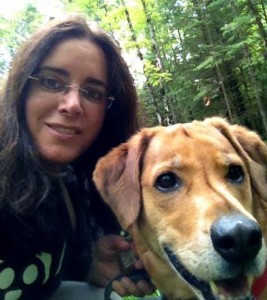Positive Dog Trainer Spotlight Series – Lori Stevens
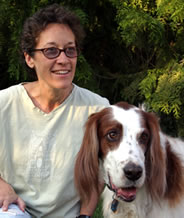
I met Lori in my quest to learn more about TTouch. Lori is a certified Tellington TTouch® (TTouch) practitioner and professional animal trainer. She is also a certified canine fitness trainer.
According to Linda Tellington-Jones, “An animal’s posture influences its behavior.” And “physical, mental, and emotional balance are inextricably linked.”
Lori is also the creator of the Balance Harness.
What was your route to positive reinforcement training?
I was never comfortable with any kind of force. I recall, many years ago, being in a puppy class and the instructor telling me to keep jerking on my pup’s leash. I just couldn’t do it, however, I did use a prong collar until I started Tellington TTouch Training. That is when I removed the prong collar for good and learned to use a harness with various leash configurations, including either one or two points of contact. Along with TTouch Training, I started taking classes that were using primarily R+. I was hooked after that.
Were you always interested in science or did behavioral science peak your interest at a later time & how?
I have a BS is in Computer Science and a minor in Mathematics. I was one of two women in the Computer Science Department–this was in the late 70s and early 80s. So yes, I’ve always been interested in science.
I intended to study medicine but then decided to work a bit first. Also, a couple of years before I went to school in Computer Science, I was studying and working in Occupational Therapy and this is what sparked my interest in medicine and movement (I was working in a rehabilitation clinic with spinal cord injuries). As a side note, I grew up dancing and I was a member of the University dance company which is where I got my love of movement.
Instead of studying medicine, I continued to work in the IT field and I’m currently an IT Director, part-time at the University of Washington. I’ve been at UW for over 25 years.
I love Behavioral Science. Studying Behavioral Science has helped my animal practice and my IT Director work. I continue to audit Susan Friedman’s 8 week course just so I can stay fluent in her incredible work. Also, I’m on the Advisory Board for the University of Washington Applied Animal Behavior Certification. And I’m certified in the IAABC.
Are there specific skill sets from previous career paths which have aided you in your current role?
Dancing, working in Occupational Therapy, being an IT Director, coaching IT leaders, and IT consulting all require skills that are useful in the animal training profession.
I have been a professional in the roles of software engineer, manager, project manager, coach, and IT Director for many years–all of my experiences and previous skill development contribute to my work now.
What is one piece of advice from someone that you consider a “mentor” that you’d like to share?
“Treat others as you’d want to be treated.” This was from a PhD in Computer Science and someone I worked for and with, at the University, for many years. He also happens to be an animal lover 🙂
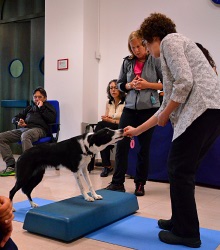
What is your favorite part of your day?
Hmmm, seeing my happy 11 yr old Cassie when I walk through the door and her happy face and enthusiasm when we wake up in the morning.
What do you find to be the most challenging in working with people & animals?
I have the best clients! It doesn’t happen very often but no-shows are tough ones..these are usually new clients.
With animals, the most challenging are the ones that you just know something is not right physically and there isn’t a diagnosis yet. These cases, of course, I refer to veterinary specialists.
What are some key skills required for animal training?
Understanding Behavioral Science and how to apply it, using both operant and classical are key skills.
Setting the animal up for success and breaking things down so that people can see what is happening–explaining how to get different behaviors is an important part of the repertoire.
Other important pieces are being able to read the body language of animals, having good timing, understanding reinforcers, placement, and timing of reinforcers, and having good teaching skills in order to help people learn are key components.
Knowing when to stop and finally, when to refer to someone else are also important skills.
What a pleasure it was to get to know Lori better! Thank you for sharing! If you would like to learn more about Lori you can connect with her at: SeattleTTouch.com or via lori@seattlettouch.com.
Note: For anyone out there who is looking to become a certified, professional, positive trainer, come and join me in Miami! Applications being accepted now: https://www.karenpryoracademy.

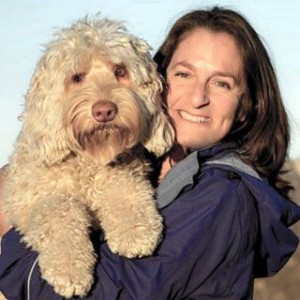 Jill Breitner is the inventor of the
Jill Breitner is the inventor of the 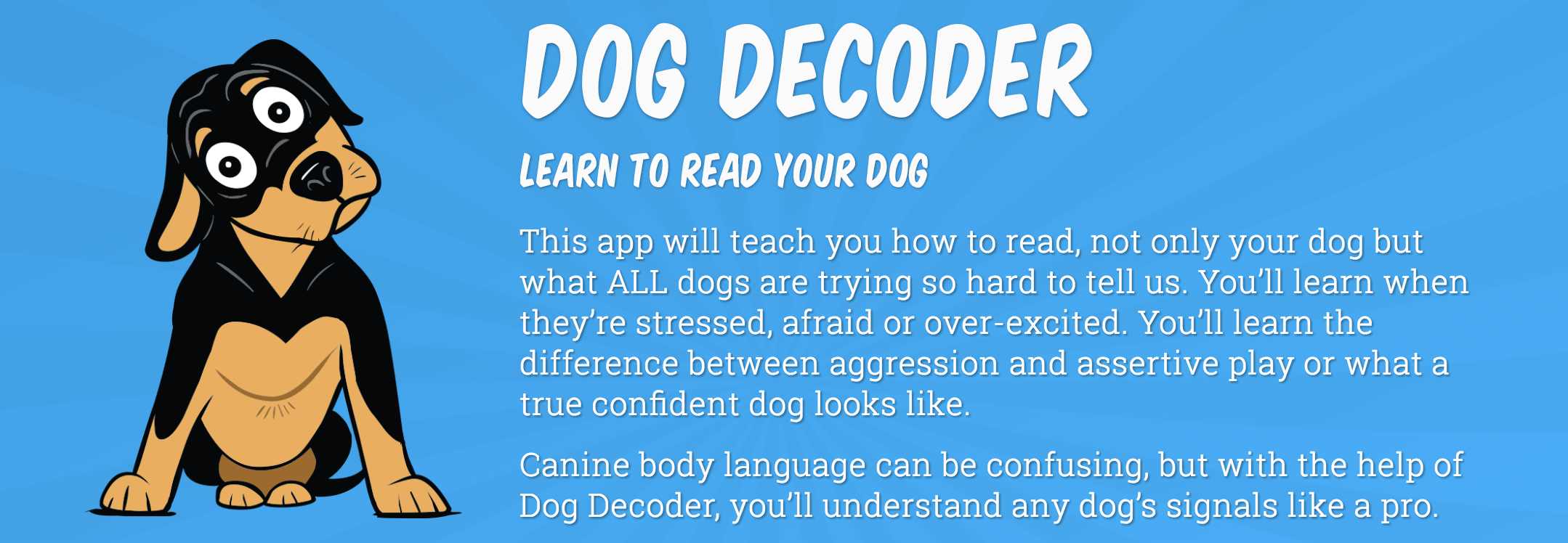
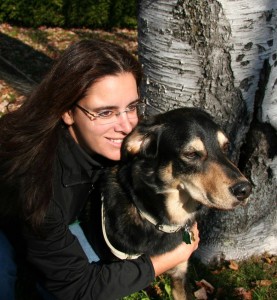 According to
According to 